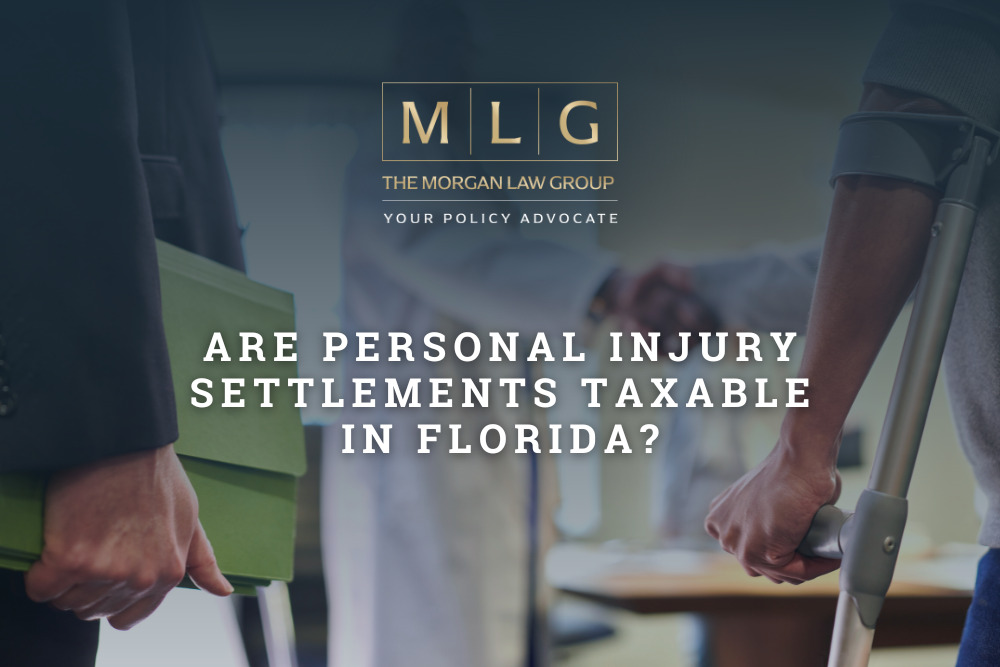After experiencing an accident or personal injury, the last thing anyone wants to think about is dealing with taxes. However, understanding the tax implications of a personal injury settlement can be crucial to making informed decisions throughout the legal process. The question of whether personal injury settlements are taxable in Florida is a common concern among those seeking compensation for their injuries. In this article, we provide a comprehensive analysis of the tax implications of personal injury settlements in Florida to help you navigate this complex area of law.
Personal Injury Settlements in Florida
Personal injury settlements in Florida are compensatory amounts awarded to individuals who have suffered harm due to another party’s negligence or intentional conduct. These settlements are designed to cover a wide range of losses associated with the injury, including but not limited to medical expenses, lost wages, and pain and suffering.
The process of obtaining a personal injury settlement in Florida typically begins with filing a claim against the party responsible for the injury. This could be an individual, a business, or even a government entity. The claim will detail the nature of the injury, the circumstances that led to it, and the damages the injured party is seeking.
Once a claim is filed, the other party may choose to settle the case out of court. This often involves negotiations between the injured party (or their personal injury attorney) and the responsible party’s insurance company. If a satisfactory agreement can be reached during these negotiations, a settlement can be finalized without the need for a trial.
However, if an agreement cannot be reached, the case may proceed to trial, where a judge or jury will determine the outcome. If the court rules in favor of the injured party, they may be awarded a settlement amount determined by the court.
It’s important to note that Florida operates under a “pure comparative negligence” system. This means that an injured party can recover damages even if they are partially at fault for the accident.
Taxable Personal Injury Settlements
As a general rule, personal injury settlements are not taxable under federal or state law. This means that compensation received for medical expenses, lost wages, and pain and suffering as a result of a physical injury is typically not considered taxable income.
However, it’s important to note that punitive damages – those awarded to punish the responsible party for their actions rather than compensate the injured party – are generally considered taxable. The reasoning behind this is that punitive damages are not awarded for the purpose of making the injured party whole but rather as a punishment for the defendant’s wrongful conduct.
Exceptions and Special Cases
There are a few exceptions and special cases in which a personal injury settlement may be considered taxable. For example:
- Emotional Distress: Compensation for emotional distress that is not directly related to a physical injury or physical sickness may be considered taxable. However, if the emotional distress is a direct result of a physical injury or physical sickness, it will likely not be taxed.
- Pre-Judgment Interest: Florida law allows for the recovery of pre-judgment interest in personal injury cases. This interest is considered taxable income.
- Lost Wages: While lost wages resulting from a physical injury or physical sickness are generally not taxable, there may be instances where a portion of the lost wages is subject to taxation.
- Medical Expense Deductions: If you have previously deducted medical expenses related to your personal injury on your tax return, and you later receive a settlement that includes compensation for those expenses, you may be required to report that portion of the settlement as taxable income.
While the general rule suggests that personal injury settlements are not taxable, the exceptions and special cases underline the importance of understanding the nuances of tax law as it relates to these settlements. Thus, being aware of these exceptions can help ensure you are not blindsided by unexpected tax obligations associated with your settlement.
Practical Tips for Your Taxable Settlements
To ensure that your personal injury settlement is properly accounted for in your taxes, consider the following practical tips:
- Keep detailed records of all settlement-related documents, including medical bills, receipts, and any correspondence with insurance companies or opposing parties.
- Consult with a tax professional to determine if any portion of your settlement is subject to taxation.
- When negotiating a settlement, consider working with an experienced personal injury attorney who can help you structure the agreement to minimize potential tax liabilities.
Being proactive about managing the potential tax implications of your personal injury settlement is crucial. These practical tips serve as a roadmap to help you navigate this complex process and ensure your settlement is handled appropriately concerning taxation.
Seek Legal Help When Dealing With Taxable Personal Injury Settlements
Understanding the tax implications of a personal injury settlement in Florida is essential to the recovery process. While most personal injury settlements are not taxable, it’s important to be aware of the exceptions and special cases that may result in taxation.
By working with an experienced personal injury attorney at Morgan Law Group, you can ensure that your settlement is structured to minimize your tax liabilities and maximize your compensation. Reach out to our team of dedicated personal injury lawyers to discuss your case, and let us help you navigate the complex legal landscape of personal injury law in Florida.

